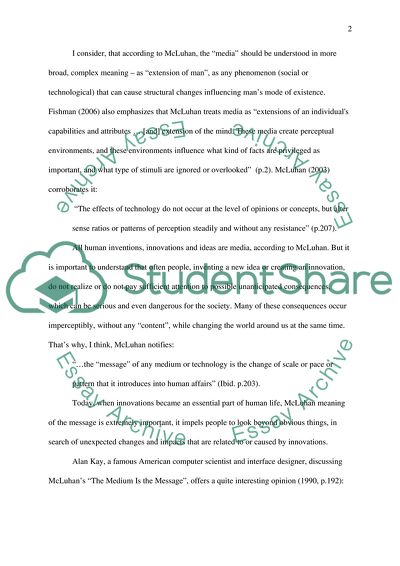Cite this document
(“The Medium And Its Impact On The Society Essay Example | Topics and Well Written Essays - 1500 words”, n.d.)
The Medium And Its Impact On The Society Essay Example | Topics and Well Written Essays - 1500 words. Retrieved from https://studentshare.org/culture/1567100-do-you-agree-with-marshall-mcluhans-aphorism-that-the-medium-is-the-message-please-refer-to-the-advent-of-print-in-your-answer
The Medium And Its Impact On The Society Essay Example | Topics and Well Written Essays - 1500 words. Retrieved from https://studentshare.org/culture/1567100-do-you-agree-with-marshall-mcluhans-aphorism-that-the-medium-is-the-message-please-refer-to-the-advent-of-print-in-your-answer
(The Medium And Its Impact On The Society Essay Example | Topics and Well Written Essays - 1500 Words)
The Medium And Its Impact On The Society Essay Example | Topics and Well Written Essays - 1500 Words. https://studentshare.org/culture/1567100-do-you-agree-with-marshall-mcluhans-aphorism-that-the-medium-is-the-message-please-refer-to-the-advent-of-print-in-your-answer.
The Medium And Its Impact On The Society Essay Example | Topics and Well Written Essays - 1500 Words. https://studentshare.org/culture/1567100-do-you-agree-with-marshall-mcluhans-aphorism-that-the-medium-is-the-message-please-refer-to-the-advent-of-print-in-your-answer.
“The Medium And Its Impact On The Society Essay Example | Topics and Well Written Essays - 1500 Words”, n.d. https://studentshare.org/culture/1567100-do-you-agree-with-marshall-mcluhans-aphorism-that-the-medium-is-the-message-please-refer-to-the-advent-of-print-in-your-answer.


